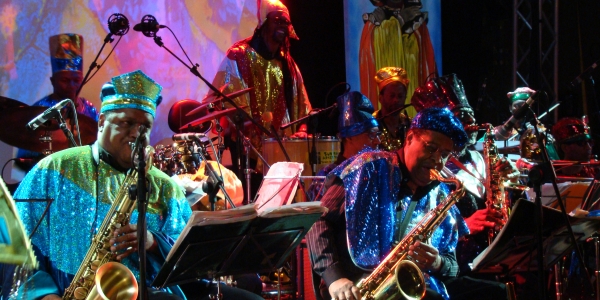“A fuckin’ mess, that’s what it was,” he says on their early days. “An absolute fuckin’ mess. It sounds a bit pretentious – I suppose I am a bit pretentious – but this band is all that I’ve ever been in. That’s born from me being in a middle-class environment where it’s been endorsed to be a stoner, be in a band, work in shitty little jobs. I didn’t necessarily have the Arctic Monkeys or Oasis environment that I needed to get out, of that boredom. I just made music from when I was 13 through till I was 20, that encapsulated going through high school, going to college, moving up to Manchester and working in call centres and stuff like that.
“We had a lot of mates in bands, so we just toured with them a lot of the time. We never did a headline show. Then we did the song Ghosts under the name Big Sleep, then we had pretty much every major label coming to our house. The consensus from them was that we didn’t seem to know what our sound was. What we came to realise was no, that’s a generational thing. That ambiguity is bread from the environment we grew up in and how we consume music. The way you create music is the same as how you consume it. But the major labels weren’t having it. It got to the point where it was a bit upsetting.”
The 1975 defy pigeon-holing through embracing a multitude of musical reference points, similar to the success found by acts such as Haim and Lorde. “I think the idea of stylistic ambiguity being embraced is a good thing. The amount of outlets we have now where so many artists are putting out rubbish has made people innately cynical,” Matthew reasons. “A lot of people in the press didn’t really understand our band because they couldn’t do the old trick of putting into a box. We haven’t done anything apart from being ourselves, and you’ve mentioned records that I love, so there must be some sort of a movement. I’m sure it’s not a coincidence.”
Much has been said in recent years about the death of the album in a digital climate. Though they managed a plethora of songs before the release of their debut album, the notion of a full-length was still an important one for The 1975.
“The album as a model, we never thought we would do anything different than that. But the idea of us doing an album was so weird. We’d written so many songs, then when we got close to The 1975, we’d revised those songs. Then every one of those songs had two or three songs around it,” he explains. “So it was like our greatest hits from the last four years. Every one of those songs was our favourite song at one point in time.”
Matthew emanates a sense of humility as he speaks down the line, not quite what you’d expect from a much-hyped UK rocker. “That’s the only thing that fucking matters, that’s the only thing I’ve got left. I embrace that more than anything. You spend so much time thinking what is going to validate you, whether it’s a number one album, whether it’s this or that, meeting that pop star. When you actually get there, you realise it doesn’t matter. All that matters is your interaction with other people. When that is amplified at a festival or stadium, those people are unified by what you’ve created,” he muses. “There’s nothing really better than that. All the other stuff is quite brittle and frivolous. We’ve realised that the only reason we’re doing this is the reason people embraced this. We’re not out there, pop-starring about. We don’t have the time. We’ve done so many fucking shows this year, something like 250. We’re booked up all through next year, like a show a day. It’s gonna be heavy.”
BY LACHLAN KANONIUK







